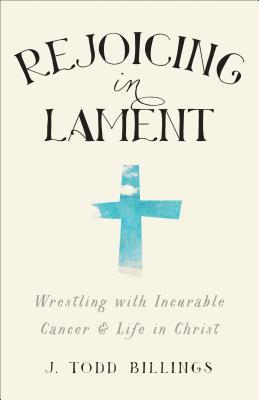What do you think?
Rate this book


At the age of 39, Christian theologian Todd Billings was diagnosed with a rare form of incurable cancer. In the wake of that diagnosis, he began grappling with the hard theological questions we face in the midst of crisis: Why me? Why now? Where is God in all of this? This eloquently written book shares Billings's journey, struggle, and reflections on providence, lament, and life in Christ in light of his illness, moving beyond pat answers toward hope in God's promises. Theologically robust yet eminently practical, it engages the open questions, areas of mystery, and times of disorientation in the Christian life. Billings offers concrete examples through autobiography, cultural commentary, and stories from others, showing how our human stories of joy and grief can be incorporated into the larger biblical story of God's saving work in Christ.
218 pages, Paperback
First published February 10, 2015
Sometimes suffering feels like a free fall rather than a swing down to the valley on a rope that will bring me back up to safety. My doctors were delighted at my body’s response to the transplant, and I was giving thanks to God. I was thankful to be alive. I knew that many others (with cancer or other trials) have had much rockier roads than my own, and that in a matter of months I would be returning to ‘the land of the living.’ But to my own surprise, much of my deepest grieving came after this good news. I recall lying on my bed in the cancer lodge, crying aloud, when the thought came to my mind: my life would never be the same...As I thought about returning to my ‘normal life.’ I felt more alienated than ever. How was I to respond to ordinary questions like ‘How are you?’ and ‘How have you been?’ How was I to look toward the future–for my family, for my vocation? ‘My eye grows dim through sorrow. Every day I call on you, O LORD; I spread out my hands to you’ (Ps. 88:9). I feared for my children, that they would lose their father midcourse in their childhood. The good news about my transplant didn’t take this fear away” (pgs. 149-150).